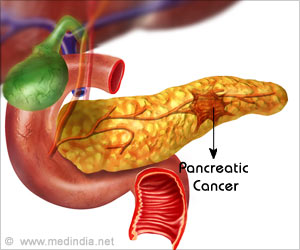A higher dose of radiotherapy can improve survival in pancreatic cancer patients, finds a new study.
- Pancreatic cancer is one of the most difficult cancers to be diagnosed due to less or no symptoms during the earlier stages.
- Radiotherapy could play a role in treating //pancreatic cancer.
- High dose of radiotherapy may help in improving the survival of pancreatic cancer patients.
Previous research studies has suggested radiotherapy be of little help to pancreatic cancer patients. However, when given at a higher dose it may have a role to play.
Research Study
The research study analyzed the data of 514 patients from Europe and the US. These patients were diagnosed when their tumors had not spread and could also be removed by the surgery.
Patients were given chemotherapy that was combined along with radiotherapy following a surgery and was followed for an average of 20 months.
The research team divided the patients into four groups, based on the dose of radiation that they received.
Study Findings
The findings of the study revealed that higher the dose of the radiation, the longer the patient lived.
- Patients who received a dose less than 45Gy had an average survival of 13 months.
- Patients with a dose range of 45-50 Gy had an average survival of 21 months.
- While in the next group, a dose range of 50-55Gy had an average survival of 22 months
- Patients with the highest doses of 55Gy or more, had an average survival of 28 months.
Dr. Francesco Cellini said, "Survival rates for pancreatic cancer remain stubbornly low, with most patients given months rather than years to live.”
"The pattern of increasing survival in this study suggests that tumors of the pancreas are not resistant to radiation, they just need to be tackled with an adequate dose."
Dr Cellini added, "Even in developed countries, perhaps only a quarter of patients are picked up early enough to have their tumors surgically removed. Although their survival chances are better, the majority still do not survive beyond a few years."
For patients with early stage tumors, surgery could be a treatment which is followed by chemotherapy and radiotherapy. However, in later-stage disease, patients are treated with chemotherapy and may be combined with palliative radiotherapy as the disease progresses.
Dr Cellini said, "Radiotherapy has benefited from a number of technological improvements over recent years and it is becoming easier to give higher doses that are targeted to the tumor area. This study suggests radiotherapy should be considered for patients with early stage pancreatic cancer. It may also be worthwhile to investigate whether current radiotherapy techniques could also bring survival benefits to patients with more advanced tumors."
The research team is now studying the high-dose radiotherapy that is combined along with chemotherapy to treat pancreatic cancer before surgery.
Professor Yolande Lievens, head of the department of radiation oncology at Ghent University Hospital, Belgium, President of ESTRO said, "This is an interesting study which raises questions about the role that radiotherapy could play in extending the lives of people diagnosed with pancreatic cancer. In this grim disease, radiotherapy has not been shown to have an impact on survival, but the current study suggests the doses previously tested may have been too low to do so.
Radiotherapy has evolved and improved considerably over recent years, allowing us to deliver higher doses without increasing side effects, and, for cancer with such poor survival rates, all promising new options should be explored."
Source-Medindia















